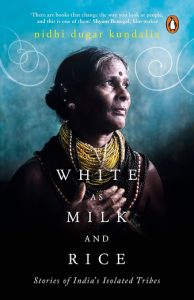
Media experts on N.Korea worry about distorted, low-quality information due to political influence, media commercialization
Journalists and media experts gathered in Seoul on Monday to discuss South Korean media’s reporting tendencies on inter-Korean relations, mainly focusing on reports from the Chosun Ilbo and Korean Broadcasting System (KBS).
Journalists taking part in the Seoul panel “Current Reporting on Inter-Korean Relations,” commonly pointed Monday to worsening reporting standards, caused by what one said was the change from progressive to conservative governments.“The expertise of the KBS journalist has been degraded since the regime change from Roh Moo-hyun to Lee Myung-bak,” said Kim Jung-hwan, a 20-year KBS reporter who once covered the Ministry of Unification (MoU) and Ministry of Foreign Affairs.
“The expert reporter policy, which had been demanded by journalists, has been abolished. Reporters who were nurtured as expert reporters on unification and diplomacy had to change departments,” he continued.
Kim said the increasingly low quality of reporting is causing unclear reports that use anonymous sources without proper filtering, due to a lack of reliable sources.
Kim said it is a systemic problem. “Without ensuring the independence of KBS, this controversy will not stop,” Kim said, referencing the South Korean government’s efforts to influence what that public broadcaster reports on.
Criticism of the Chosun Ilbo’s reporting on North Korea was also raised during the panel.
“It reported on high-ranking officials’ defection on July 6, quoting Daily NK’s unnamed source. This kind of article uses a lot of sentences like ‘it is known that.’ The defection was denied by the MoU later,” Lee Yong-ma, a former MBC reporter said, describing such reports as “ghost articles.”
Lee said that the Chosun Ilbo‘s pivotal position had not changed, despite a well-known transition since January 2014.
“Looking into the four-part series ‘Unification is the Future,’ there is a contradiction between the general vision on unification and (their) perspective on the Kim Jong Un regime.”
This contradiction is caused by the lack of a of a specific plan for unification, Lee said.
“The Chosun Ilbo is suggesting a rosy future of unification by focusing on the economic benefits, but decision-making-level media staff still have a biased and negative perspective on North Korea.”
Kim Chi-gwan, chief editor of the Tongil Sinmun, said that there is no signal of a faltering North Korea regime, despite the continuous purges revealed by the National Intelligence Service (NIS).
“President Park ordered publicity about the Hyon Young Chol purge among the people, and the NIS reported it to the National Assembly. Then the media reported this, saying that the regime is unstable.”
Jang Yong-hoon, who covers North Korea for Yonhap News, said that there are regulations about reporting on the North Korean issue, created in 1995.
“However, journalists don’t care about this regulation, don’t even know the existence of it.”
Experts argued that reporting about North Korea causes uncertainty, as it is impossible to check the authenticity of rumors.
“The May 24 Measures (banning most inter-Korean trade) worsened this tendency. Now journalists cannot help depending on second- or third-rate information,” said Shim Young-sup, a lecturer at Hankuk University of Foreign Studies. – NK News
Featured image: Wikipedia Commons




